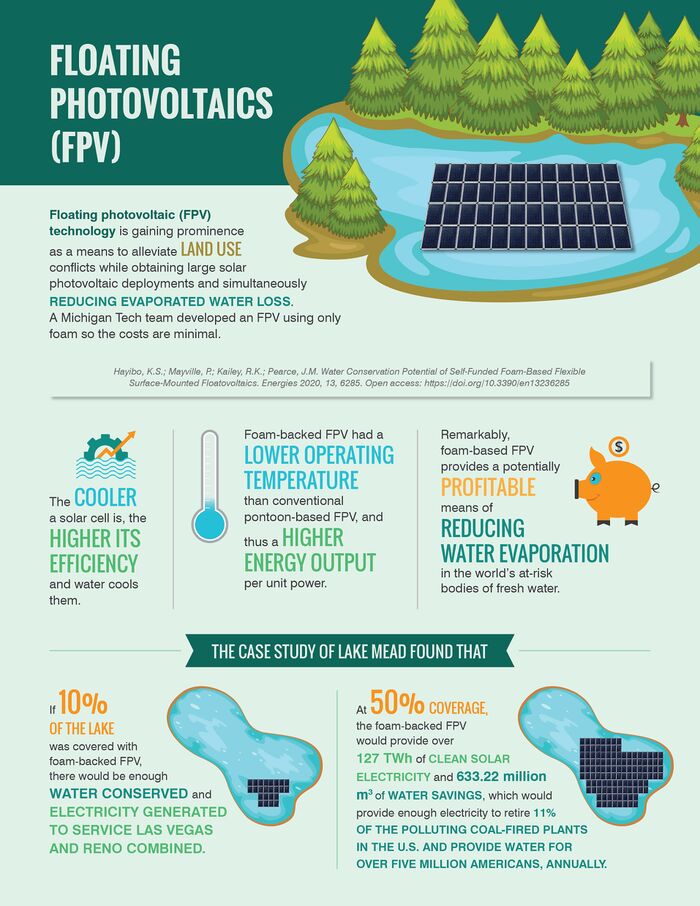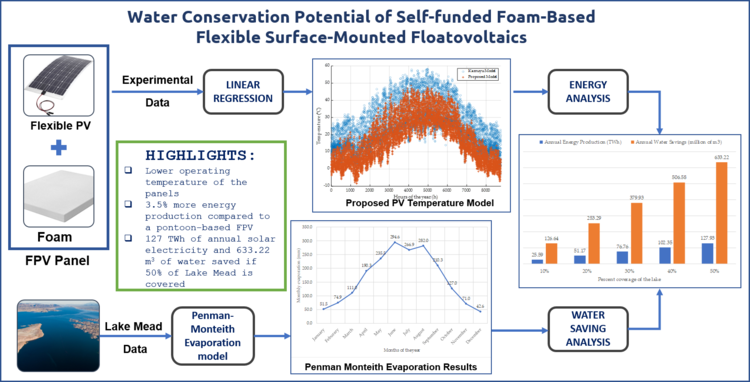A potential solution to the coupled water–energy–food challenges in land use is the concept of floating photovoltaics or floatovoltaics (FPV). In this study, a new approach to FPV is investigated using a flexible crystalline silicon-based photovoltaic (PV) module backed with foam, which is less expensive than conventional pontoon-based FPV. This novel form of FPV is tested experimentally for operating temperature and performance and is analyzed for water-savings using an evaporation calculation adapted from the Penman–Monteith model. The results show that the foam-backed FPV had a lower operating temperature than conventional pontoon-based FPV, and thus a 3.5% higher energy output per unit power. Therefore, foam-based FPV provides a potentially profitable means of reducing water evaporation in the world's at-risk bodies of fresh water. The case study of Lake Mead found that if 10% of the lake was covered with foam-backed FPV, there would be enough water conserved and electricity generated to service Las Vegas and Reno combined. At 50% coverage, the foam-backed FPV would provide over 127 TWh of clean solar electricity and 633.22 million m3 of water savings, which would provide enough electricity to retire 11% of the polluting coal-fired plants in the U.S. and provide water for over five million Americans, annually.
- For Calculations see: Project Page on OSF
- For designs see: Distributed manufacturing of after market flexible floating photovoltaic modules
- For a literature review on FPV see: Solar floatovoltaics lit review
Infographic[edit | edit source]

Graphical Abstract[edit | edit source]

Keywords[edit | edit source]
Floating photovoltaic; FPV; Flexible; Closed-cell foams; Sustainable development; Open-source; Photovoltaic; Racking; water; floatovoltaic; energy water nexus; dual use; water conservation; FPV; solar energy
See also[edit | edit source]
- Distributed manufacturing of after market flexible floating photovoltaic modules
- 3-D Printing Solar Photovoltaic Racking in Developing World
- The Greenest Solar Power? Life Cycle Assessment of Foam-Based Flexible Floatovoltaics
- Foam-based floatovoltaics: A potential solution to disappearing terminal natural lakes
- Impacts of Location on Designs and Economics of DIY Low-Cost Fixed-Tilt Open Source Wood Solar Photovoltaic Racking







